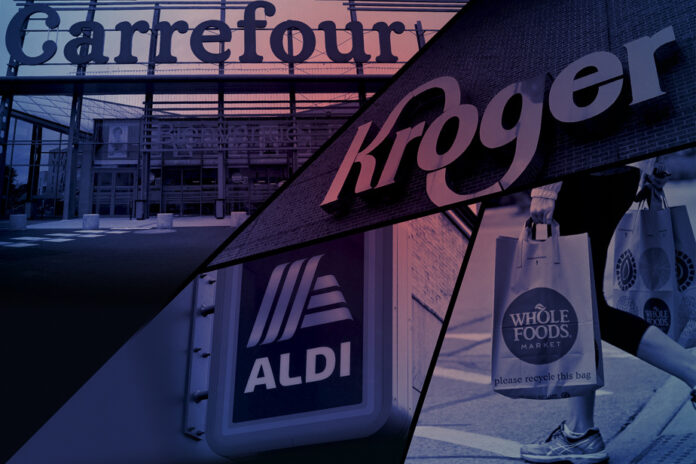Bosses of foreign grocery chains who land in the country with the aim of breaking into the market, but who immediately fly back after having made several observations: unattractive margins, premises that are becoming scarce, great distances to travel and costly regulation.
This is how Mario Bélanger, retail consultant and former Cotsco and Mayrand employee, describes the many meetings he had with senior supermarket executives who came from overseas to learn from him about the workings of the Canadian market.
Why do they leave empty-handed? Opening stores in the country is not “attractive” for international food retailers, argue the experts consulted by La Presse.
“In discussions with international grocers, the Bureau has learned that some are or have been considering entering Canada, but none have publicly announced their intention to do so soon,” reads a report from the Competition Bureau entitled Canada needs more competition in the grocery sector. In less than 30 years, the number of major retailers in the country has gone from eight to five.
However, a greater number of players in the supermarket industry would favor lower prices. And to achieve this, the federal government should in particular encourage the entry of international companies into the scene, the organization recommended in its study published on Tuesday.
While the first Costco (Club Price) warehouses appeared on the Canadian landscape at the end of the 1980s and Walmart made its entrance there in the 1990s, no other major foreign food chain has subsequently come to do so. her brand. When will a first Carrefour (France) or ALDI (Germany) store?
“There is no one preventing them from coming. But the Canadian market is not an easy market, underlines Maurice Doyon, professor in the department of agro-food economics and consumer sciences at Laval University. We have a large country with a low population density. There is more distance to travel,” he adds.
And although, according to the Competition Bureau, the margins of Loblaw (Maxi, Provigo), Sobeys (IGA) and Metro have increased “modestly” but “significantly”, they are probably not “juicy” enough to elicit the interest of international channels. “As we speak, margins are better, but that’s recent. When there is food inflation, it is easier to increase margins. But these are not juicy margins,” observes Doyon.
“A brand present everywhere in the United States sells there in a month what it does in a year in Canada”, illustrates for his part Christian Desîlets, professor of advertising at Laval University.
Another deterrent: “labelling, francization”; it costs a fortune, says Mario Bélanger. However, he would like to add that he is the first to defend the importance of this regulation. This point was also raised during discussions between officials of the Competition Bureau and the heads of certain foreign retailers.
The scarcity of premises is also added to the list of arguments against setting up in the country. “There are no more good locations,” says Mr. Bélanger. And real estate has become very expensive. »
He also mentions that in some shopping centers where there is already a grocery store, it is sometimes impossible for another brand to set up shop there as well.
Despite the obstacles to overcome, does a foreign merchant who decides to establish himself here have a chance of success? On this subject, opinions are divided. “Carrefour could come and set up shop. But there is someone who is going to die, launches Maurice Doyon bluntly. It’s going to be a price war until someone lets go. »
The specialist, however, qualifies his point of view by saying that a low-cost brand would – perhaps – have a better chance of survival without necessarily bringing down another. “But it’s not clear that there’s enough room,” he said, however.
Mario Bélanger is not of the same opinion. He claims that “no one would fall” with the arrival of a new sign. “These are too big organizations. They won’t fall. Will they occasionally lose a pound sale of butter? Yes. »
Christian Desîlets also believes that the market is big enough for other players and that their entry on the scene would be beneficial for consumers. “Players will eat into their profits. They have room. They can cut. They have more fat than a whale. »
Some international grocers interviewed by the Competition Bureau would expect “tough competition from Canadian grocers” if they entered the country. They added that it would be difficult to display such competitive prices.
“The international grocers we spoke to acknowledged that while some companies, like Costco and Walmart, had made it into Canada, others, like Target, had missed out,” the report also reports. report. Two years after opening its first store in the country, the American Target announced in 2015 that it was throwing in the towel, closing 133 stores.
Foreign companies believe that Canadian food retailers are recognized for offering a wide range of products that meet the needs of customers from different cultural communities. “Any grocer trying to enter the industry will have to offer a similar selection of products,” said several representatives of foreign companies. For this reason, entering the grocery business in Canada could be difficult and costly. »















